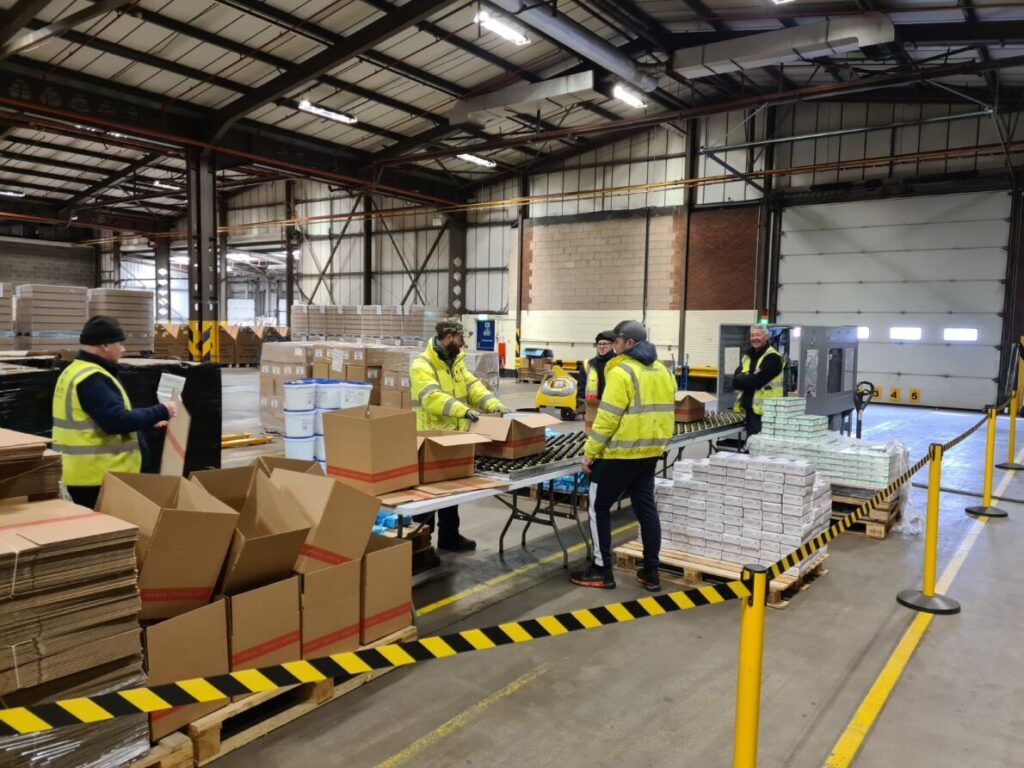The evolution of e-commerce platforms has transformed business and consumer interactions. In this digital era, marked by shifting consumer behaviours, the demand for efficient logistics solutions has surged, giving rise to the need for top-tier eCommerce 3PL companies.
This is where Third-Party Logistics (3PL) providers come in, the unsung heroes behind the scenes. Let’s delve into how the booming e-commerce industry has influenced the demand for 3PL services and explore strategies for small e-commerce businesses to leverage these services.

The E-commerce Boom: Catalyst for 3PL Demand
The exponential growth of e-commerce has rewritten the rules of shopping, Offering both opportunities and challenges. This digital revolution has introduced the convenience of shopping from the confines of one’s domicile, a wider array of choices, and has fanned the flames of e-commerce proliferation. However, this rapid expansion has exerted tremendous pressure on conventional supply chain models, necessitating the deployment of agile and scalable logistics solutions.
The surge in e-commerce activities has led to an increased need for effective management of inventory, shipping, and the crucial last-mile delivery. This is where 3PL companies come into the picture, bringing a wealth of expertise and resources to the table. This, in turn, empowers e-commerce enterprises to concentrate on their core competencies while entrusting the intricacies of logistics to the adept specialists.
As e-commerce companies strive to meet the ever-growing customer expectations for faster deliveries and seamless experiences, 3PL providers can be an excellent strategic partner in handling the operational aspects of delivery.
How Ecommerce 3PL Companies Empower Small Businesses
While the e-commerce boom has favoured industry giants such as Amazon & eBay, it has also provided a unique opportunity for small businesses to thrive in the digital age. 3PL services especially have been a key player in helping these smaller players drive success and keep up with these industry giants.
Larger corporations have a significant advantage when it comes to logistics and supply chain management, due to their vast resources and economies of scale. Small businesses often struggle to compete in this logistics efficiency and cost-effectiveness. However, by partnering with a 3PL provider, small businesses can get access to a larger logistics infrastructure including advanced technology, warehousing, transportation networks, and expertise, without having to invest in the entire infrastructure.
3PL partnerships can also help these small businesses expand beyond local markets. Small businesses can tap into the 3PL provider’s infrastructure to reach new regions and countries. 3PL providers can facilitate international shipping, customs compliance, and last-mile delivery in unfamiliar markets, enabling small businesses to broaden their customer base and revenue streams.
What to Look for in Ecommerce 3PL Companies
To maximise the benefits of partnering with 3PL providers, businesses must adopt a strategic approach that aligns with the dynamic nature of modern commerce.
1. Clear Communication and Collaboration
Establishing transparent and robust communication channels with your 3PL provider is paramount. This can include regular dialogues, real-time data sharing, and collaborative problem-solving. Clear communication fosters trust and ensures that both parties operate in harmony, resulting in streamlined operations and heightened customer satisfaction.
2. Multi-channel Integration
In the era of omnichannel retail, e-commerce businesses must integrate their various sales channels seamlessly, whether from their physical stores, website, or online marketplaces like Amazon. This integration involves harmonising inventory management, order processing, and shipping across platforms. A proficient 3PL partner can help unify these channels, enhancing efficiency and customer experience.
3. Reverse Logistics
While traditional logistics focuses on the outbound movement of goods, the importance of reverse logistics (handling returns and exchanges) cannot be overstated in e-commerce. A robust reverse logistics strategy ensures that returned products are processed, reducing costs and maintaining customer satisfaction.
4. Continuous Optimization
Embrace a culture of continuous improvement within your partnership with the 3PL provider. This can be achieved through assessing performance metrics and identifying areas where optimization is possible. Whether it be enhancing warehouse layouts or optimizing delivery routes, an unwavering commitment to ongoing refinement can yield substantial cost savings and operational enhancements.
5. Scalability
One of the key benefits of partnering with 3PL providers is scalability. E-commerce businesses often experience seasonal spikes in demand, such as during holidays or special promotions. 3PL providers offer a flexible solution by aligning their resources to accommodate these variations, including provisions for additional warehouse space, transportation capacity, and skilled personnel to keep up during these high-demand periods.
Choosing the Right Ecommerce 3PL Companies
The rapid growth of e-commerce has made 3PL services an indispensable part of the modern supply chain, especially for smaller businesses. By harnessing the power of 3PL, these businesses can streamline operations, enhance customer satisfaction, and stay ahead in the competitive e-commerce landscape.
When selecting a 3PL partner, businesses should exercise discernment to ensure optimal operational and logistical efficiency.
Are you in search of a 3PL partner tailored to your specific business requirements? Dependall’s 3PL services can be customised to guarantee efficiency, flexibility, and profitability for your enterprise. Reach out today to embark on a transformative journey!




